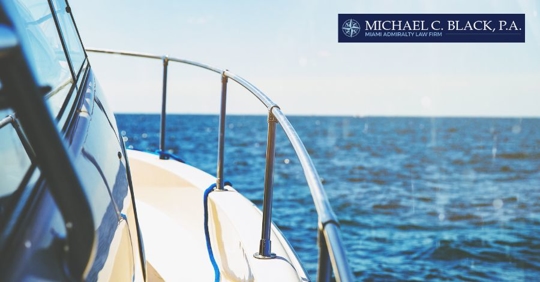Experiencing a boating accident can be a traumatic event, leaving you with serious injuries, medical bills, and a long road to recovery. For many Florida residents who enjoy the state’s beautiful waterways, understanding the legal process after such an incident is a crucial step toward seeking justice and compensation. This guide provides a compassionate, experienced, and authoritative overview of what to expect when filing a lawsuit for a boating accident injury.
The Initial Consultation: Gathering the Facts
The first step in any personal injury claim is a thorough consultation with a qualified maritime law attorney. During this meeting, the attorney will listen to your story, review the details of the accident, and gather all relevant documentation. This includes police reports, medical records, photographs of the scene, and any witness statements. This initial phase is about building a strong foundation for your case and understanding the full scope of your injuries and damages.
The Investigation: Building a Case
Once a lawsuit is filed, a detailed investigation begins. This is a critical period where the legal team works to prove liability. Unlike car accidents, boating accidents often involve complex legal issues, including maritime law and federal regulations. The investigation may involve examining the vessel’s maintenance records, crew qualifications, and compliance with safety standards. Experts may be brought in to reconstruct the accident and provide testimony on the cause of the crash. This thorough approach is essential for identifying all parties responsible for your injuries, which could include the operator, the boat owner, or even the manufacturer.
Navigating the Legal System: Discovery and Negotiation
After the investigation, the discovery phase of the lawsuit begins. This is where both sides exchange information and evidence. This can involve written questions (interrogatories), requests for documents, and depositions, where witnesses and parties are questioned under oath. The goal is to uncover all the facts and weaknesses in the opposing party's case.
Throughout this process, there is often an opportunity for settlement negotiations. Many boating accident cases are resolved through mediation, a formal negotiation session with a neutral third party. An experienced attorney will skillfully negotiate on your behalf to secure a fair settlement that covers your medical expenses, lost wages, and pain and suffering.
Trial: Presenting Your Case in Court
If a fair settlement cannot be reached, the case will proceed to trial. This is where your legal team will present your case to a judge or jury. They will call witnesses, introduce evidence, and make compelling arguments to demonstrate the defendant’s negligence and the extent of your damages. While going to trial can be intimidating, a Board Certified attorney with a proven track record can provide the authoritative representation needed to navigate this complex process and advocate for your rights.
The Importance of Expertise
Boating accident lawsuits are not like typical personal injury cases. They fall under the specific domain of Admiralty and Maritime Law. A lawyer with Board Certification in this specialized field by the Florida Bar has demonstrated a superior level of knowledge and experience.
If you have been injured in a boating accident, do not face the legal process alone. Michael C. Black, P.A. can provide the strong, compassionate representation you need to pursue the compensation you deserve. We can help navigate the unique laws and regulations governing vessels and accidents on the water, ensuring that every aspect of your case is handled with the highest level of proficiency.
For a free and confidential consultation, contact us at (305) 964-8792 now.

